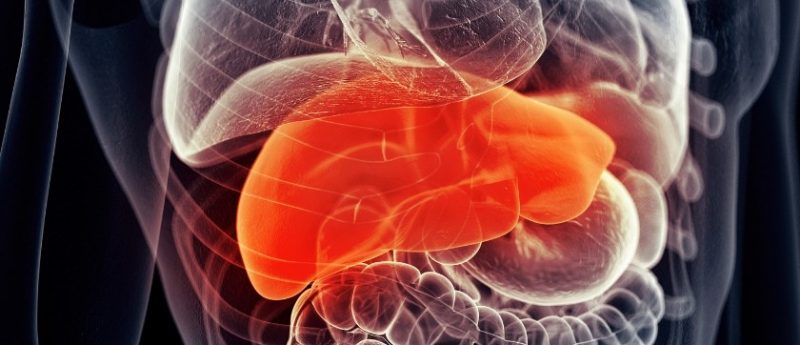Lenvatinib vs sorafenib in unresectable HCC: an interview with Arndt Vogel

We recently caught up with Arndt Vogel from Hanover Medical University (Germany) to learn about clinically meaningful data from a pivotal Phase III study which indicates that lenvatinib is non-inferior to sorafenib in median overall survival for the first line systemic treatment of patients with unresectable hepatocellular carcinoma (HCC). In this interview you can find out about the current treatment options for unresectable HCC, the design and results of the REFLECT trial and the clinical significance of its findings.
What are the current treatment options for unresectable HCC?
- The rate of liver cancer has been rising steadily over the past decade and mortality rates remain high. More than 70% of patients who have advanced disease at the time of diagnosis are not candidates for curative treatment modalities such as surgery. Patients with intermediate disease can, in most cases, be initially treated with local therapies such as transcatheter arterial chemoembolization (TACE). Patients not responding to TACE or with extra hepatic disease require systemic therapy.
- At present, there is only one systemic therapy (sorafenib) approved by the European Medicines Agency for the first-line treatment of unresectable HCC and the median survival for patients is only 1 year. Patients are therefore in real need of additional treatment options.
Could you give us a brief overview of the REFLECT trial?
- The REFLECT trial was an international multicenter, randomized, open-label, non-inferiority Phase III study to compare the efficacy and safety of lenvatinib versus sorafenib as a first-line systemic treatment in patients with unresectable HCC.
- 954 patients were randomized to receive lenvatinib 12 mg or 8 mg once a day depending on body weight (n=478) or sorafenib 400 mg twice a day (n=476).
- The primary endpoint of the REFLECT study was median overall survival. Secondary efficacy endpoints included progression-free survival, time to progression and overall response rate as well as quality of life and plasma pharmacokinetics parameters
What was the reasoning behind making the trial a non-inferiority trial?
- The non-inferiority design is an existing possible standard approach to demonstrate efficacy of a drug and this design was utilized in several of the previous large Phase III trials in HCC, all of which were unsuccessful so far.
- The non-inferiority design does not preclude testing of superiority and at the same allows us to demonstrate statistically equivalent activity.
Could you tell us the main findings gathered from this trial?
- This trial revealed that lenvatinib, a multiple receptor tyrosine kinase inhibitor, is the first systemic therapy to demonstrate non-inferiority to the current standard of care in the primary efficacy endpoint of overall survival and show statistically significant and clinically meaningful improvements across secondary efficacy endpoints including median time to progression, progression-free survival and response rate.
- Lenvatinib demonstrated positive results across all efficacy endpoints when compared to sorafenib in the REFLECT trial (Study 304), a Phase III trial for previously untreated patients with unresectable HCC.
- Median overall survival for patients treated with lenvatinib was 13.6 months (95% confidence interval (CI): 12.1-14.9 months) compared with 12.3 months (95% CI: 10.4-13.9 months) for those treated with sorafenib (hazard ratio (HR): 0.92; 95% CI: 0.79-1.06).
- The most common treatment-emergent adverse events (TEAEs) of any grade among patients who received lenvatinib were hypertension, diarrhoea, decreased appetite, and decreased weight. In the sorafenib arm, the most common TEAEs were palmar-plantar erythrodysesthesia (hand-foot syndrome), diarrhoea, hypertension and decreased appetite. TEAEs occurred in 98.7% of patients in the lenvatinib arm and 99.4% in the sorafenib arm of the study.
What were the main differences in secondary end-points and/or side effects observed for lenvatinib and sorafenib?
- Lenvatinib was superior to sorafenib in all secondary efficacy endpoints, having achieved statistically significant and clinically meaningful improvements in progression-free survival, time to progression and overall response rate
- Median progression-free survival for patients treated with lenvatinib was 7.4 months (95% CI: 6.9–8.8 months) compared with 3.7 months on sorafenib (95% CI; 3.6–4.6 months); (HR: 0.66; 95% CI: 0.57-0.77; p<0.00001).
- Median time to progression on lenvatinib was 8.9 months (95% CI: 7.4-9.2 months) compared to 3.7 months on sorafenib (95% CI: 3.6-5.4 months); (HR: 0.63; 95% CI: 0.53-0.73; p<0.00001).
- Objective response rate was 24% in patients treated with lenvatinib compared to 9% in patients treated with sorafenib (odds ratio: 3.13; 95% CI: 2.15-4.56; p<0.00001), based on investigator assessment.
What is the clinical significance of these findings?
- REFLECT is the first Phase III trial to demonstrate an agent, lenvatinib, was non-inferior to sorafenib in overall survival, and superior to sorafenib in progression-free survival, time to progression and overall response.
- This represents an important step forward for patient care and one that could lead to a potential new treatment option.
What advancements do you hope to see in terms of treatment options for HCC in the next 5 years?
- Novel treatment options for patients in first line therapy.
- Novel drugs that can be utilized in future trials as combination partner, for example with immune therapies.
- Additional treatment options may lead to a potential improvement in median overall survival for patients with advanced HCC.
 Senior Physician & Professor for Gastrointestinal Oncology in the Department of Gastroenterology, Hepatology and Endocrinology of Hanover Medical University (Germany).
Senior Physician & Professor for Gastrointestinal Oncology in the Department of Gastroenterology, Hepatology and Endocrinology of Hanover Medical University (Germany).
Professor Arndt Vogel is managing senior consultant and professor of gastrointestinal oncology in the Department of Gastroenterology, Hepatology and Endocrinology at Hannover Medical School (Director Prof. Dr. M.P. Manns). He is responsible for patients with gastrointestinal tumours, and is part of the liver transplantation and endoscopy team. He is leading a research group interested in the pathogenesis of hepatocellular carcinoma. Since 2004, Professor Vogel has been head of a research group focused on the molecular aspects of GI cancers. Several foundations and agencies, including the Deutsche Krebshilfe and Deutsche Forschungsgemeinschaft, fund his basic research. He is a Reviewer or Editor for many top-tier scientific journals and the author or coauthor of articles published in peer-reviewed journals including Cell, Cancer Cell, Gastroenterology, and Hepatology, as well as numerous book chapters.





